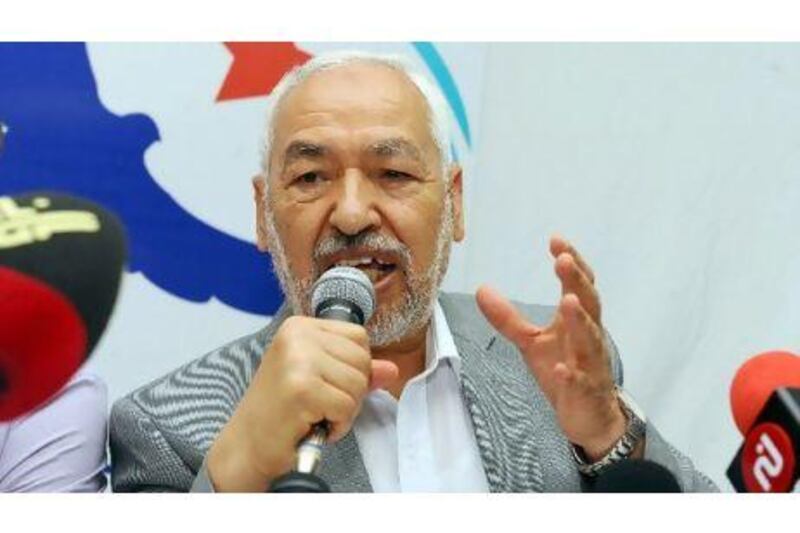TUNIS // Tunisia's Islamist movement, Ennahda (Renaissance), has made its "definitive" withdrawal from a national commission to implement political reforms.
The commission "believes it has a popular legitimacy, when it hasn't," Ennahda's leader, Rached Ghannouchi, said at a news conference in Tunis yesterday.
Mr Ghannouchi also reproached the commission for its "condescension".
The reform panel was set up in February, with a brief to pave the way for democratic change, after a popular uprising ousted the president Zine El Abidine Ben Ali on January 14.
Mr Ghannouchi, charging that some commission members wanted to "promote their own aims" and that the panel was behaving like "a parliament", asked the panel rhetorically: "Who are you to want to decide the essential laws for the people?"
Ennahda had suspended its participation in the commission's work last week. The Islamist movement, which was legalised in March after three decades as a banned opposition group, had initially pulled out of the reform panel at the end of May after a dispute over the date for elections, which had been set for July 24.
The reform panel is headed by Yadh Ben Achour, a jurist who played a major part in choosing its members.
Mr Ghannouchi said the commission bore "the responsibility for the departure" of Ennahda, but he did not rule out a return if the panel changed its outlook.
He said it was a "definitive withdrawal if the high instance continues to ignore the principle of a consensus. If reason prevails concerning a consensus we could study the option of returning."
Apart from a dispute over an election date, Ennahda disagreed with the panel over the financing of political parties. The rules that the commission wants to establish are contested by the large political movements that have substantial resources and do not want to see them cut, according to observers.
There is also a dispute over the inclusion in a "Republican Pact" that is intended to be the basis for a new Tunisian constitution of a clause banning any normalisation of relations with Israel.
The leader of the Democratic Progressist Party, Ahmed Nejib Chebbi, which seeks to be an alternative to the Islamists, has also criticised the reform panel, arguing that it is "not widely representative" because its members are not elected. "The sooner it goes, the better it will be for the country," Mr Chebbi said in an interview.
Mr Ghannouchi returned to Tunisia on January 30 after nearly 20 years in exile, mostly in London, to be welcomed by thousands of cheering supporters.
He founded the movement in 1981 with intellectuals inspired by the Muslim Brotherhood born in Egypt.





